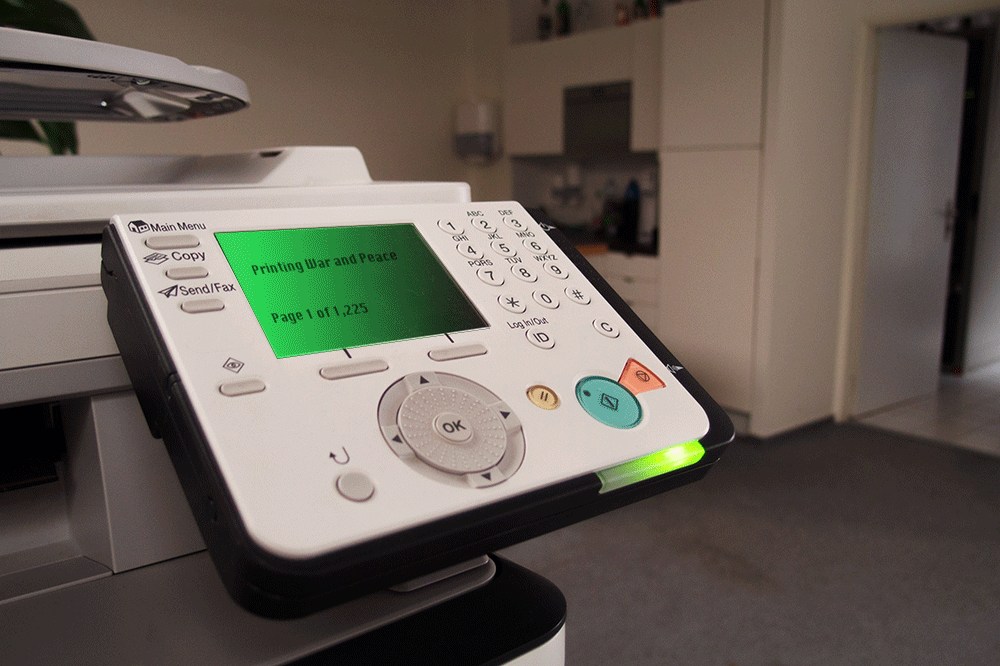【Perfume And Murder (2021) Hindi Short Film】
In Praise of the Photocopy
Arts & Culture

Essays by Roland Barthes marked with fluorescent highlighters; poems by Carlos de Rokha or Enrique Lihn stapled together; ring-bound or precariously fastened novels by Witold Gombrowicz or Clarice Lispector: it’s good to remember that we learned to read with these photocopies, which we waited for impatiently, smoking, on the other side of the copy-shop window. As citizens of a country where books are ridiculously expensive to buy and libraries are poorly equipped or nonexistent, we got used to reading photocopies, and we even came to find it charming. In exchange for just a few pesos, some giant, tireless machines could bestow on us the literature we so desired. We read those warm bundles of paper and then stored them on shelves as if they were real books. Because that’s what they were to us: rare, beloved books. Important books.
I remember a classmate who photocopied War and Peaceat a rate of thirty pages per week, and a friend who bought reams of light-blue paper because according to her, the printing came out better. The greatest bibliographic gem I have is a slipshod but lovingly made copy of La Nueva novela, the inimitable book-object by Juan Luis Martínez that we tried to imitate anyway. My version is complete with a transparent inset, a Chilean flag insert, a page with Chinese characters intermingled in the text, and fishhooks stuck to the paper. Several of us collaborated on making it, regressing back to our days in carpentry class at school. The resulting table was pretty wobbly, but I’ll never forget what a good time we had in those weeks of scissors, fasteners, and photocopies.
In the second half of the nineties, some publishers started a campaign against photocopying books, and they used this disquieting slogan: “A book dies every time you photocopy one.” We felt those campaigns as a kind of attack on us: they wanted to take away the only means we had to read what we really wanted to read. They said the photocopy was killing the book, but we knew that literature survived in those stained pages, just as it survives now on screens—because books are still scandalously expensive in Chile.
The discussion around digital books, incidentally, is at times overly elaborate: the defenders of conventional books appeal to romantic images of reading (to which I fully subscribe), and the electronic propagandist will insist on the comfort of carrying your library in your pocket or the miracle of endlessly interlinking texts. But it’s not so much about habits as it is about costs. Can we really expect a student to spend twenty thousand pesos on a book? Isn’t it quite reasonable for them to just download it from the Internet?
Today many readers have first-rate virtual libraries, with no need to use a credit card or buy the latest gadget. It’s hard to be against this miracle. Editors, booksellers, distributors, and authors unite occasionally to combat practices that ruin business, but books have become luxury items, and absolutely nothing indicates that this will change—especially in countries like Chile, where books are, and have been for too many years now, the domain of collectors.
I myself have become a collector over time because I wouldn’t dare to live without my books. But in my case, it’s something more like atavism, an anachronistic and slightly absurd inclination to sleep wrapped up in a library. I remember a friend who would always offer me a storage room for my books because he couldn’t understand how I could forgo so much of my living space to hang those shelves that were, according to him, dangerous: “The next earthquake will hit and they’ll fall on top of you and you’ll die, all thanks to your encyclopedias,” he’d say, even though I’ve never owned encyclopedias.
Nor have I been able to throw away the old ring-bound photocopies, even when I later got hold of the books in original editions. Now that photocopies are on the wane, I can’t help but feel a bit nostalgic, and I can’t bring myself to throw them out; every once in a while, I still page through those fake books that once provoked a genuine and lasting wonder.
—Translated from the Spanish by Megan McDowell
Alejandro Zambra is a Chilean writer who lives in Mexico City. His books include Multiple Choice and My Documents, among others.
Megan McDowell is a literary translator from Kentucky who lives in Santiago, Chile.
Excerpted from Not to Read, by Alejandro Zambra, translated by Megan McDowell, published by Fitzcarraldo Editions.
Search
Categories
Latest Posts
Thirteen Steam Features You Probably Don't Know About
2025-06-27 09:18Reddit bests Facebook by rolling out a superior deepfakes policy
2025-06-27 09:04Adele freaks out mid
2025-06-27 08:03ChatGPT has gone down the day after Christmas
2025-06-27 07:48Popular Posts
Even Trump's Earth Day message was anti
2025-06-27 08:49Tina Fey and Amy Poehler to return as Golden Globes hosts in 2021
2025-06-27 07:26Adele freaks out mid
2025-06-27 07:12Save 50% on a Blink video doorbell and camera bundle
2025-06-27 06:51Featured Posts
Donald Trump talked about space and Buzz Aldrin's face says it all
2025-06-27 08:54Popular Articles
Utah Jazz vs. Los Angeles Clippers 2024 livestream: Watch NBA online
2025-06-27 09:21Ring admits its employees tried to access customers' private video
2025-06-27 08:27Newsletter
Subscribe to our newsletter for the latest updates.
Comments (5198)
Fast Information Network
Canoo reportedly puts staff on 'mandatory unpaid break' for weeks
2025-06-27 08:23Habit Information Network
TikTok fixes a number of ugly security flaws
2025-06-27 08:16Feast Information Network
Galaxy Bloom is the name of Samsung's new foldable phone, report claims
2025-06-27 08:15Exquisite Information Network
Ring admits its employees tried to access customers' private video
2025-06-27 07:51Exquisite Information Network
VidCon 2025: Creators share their mistakes and lessons learned
2025-06-27 06:54